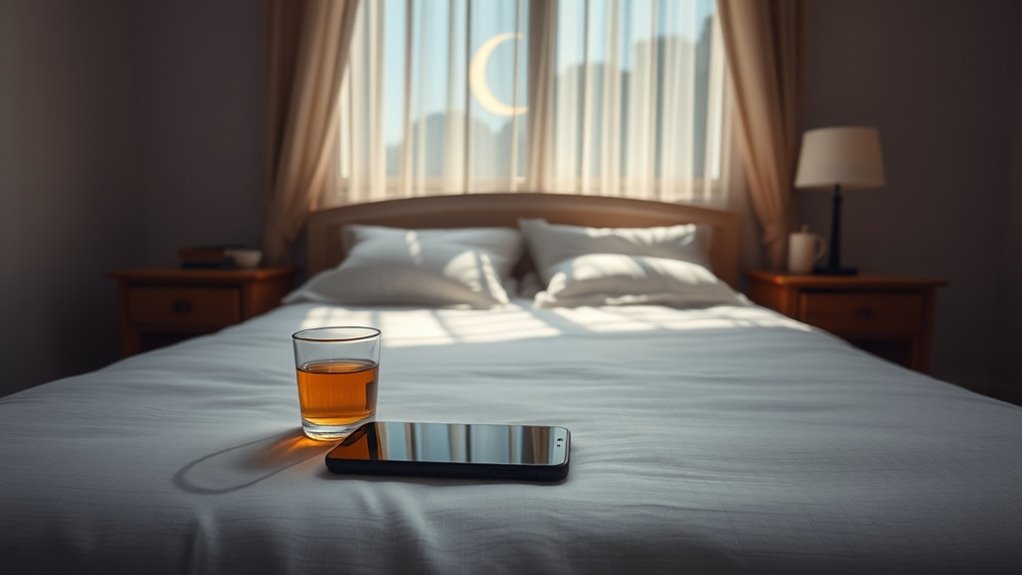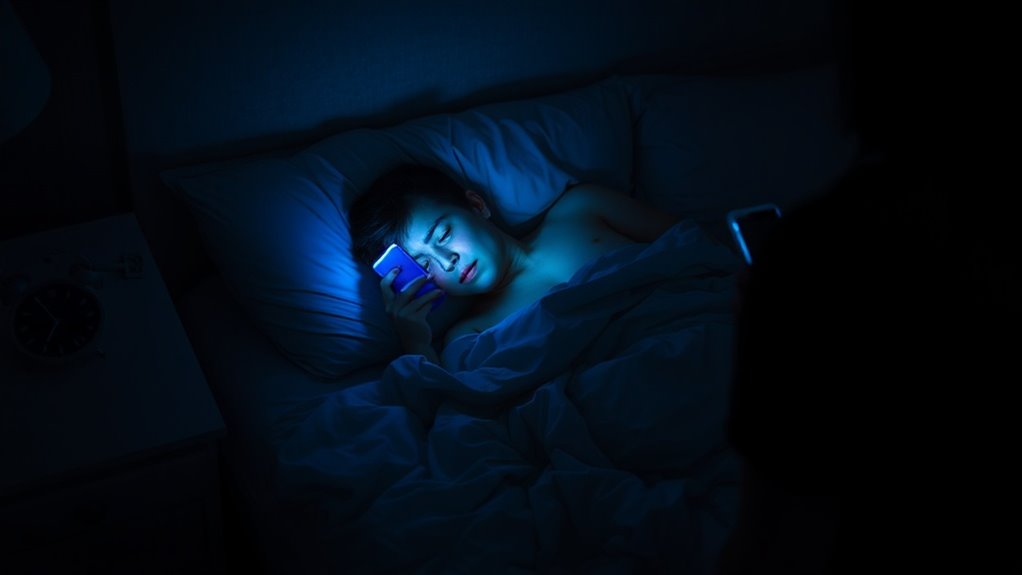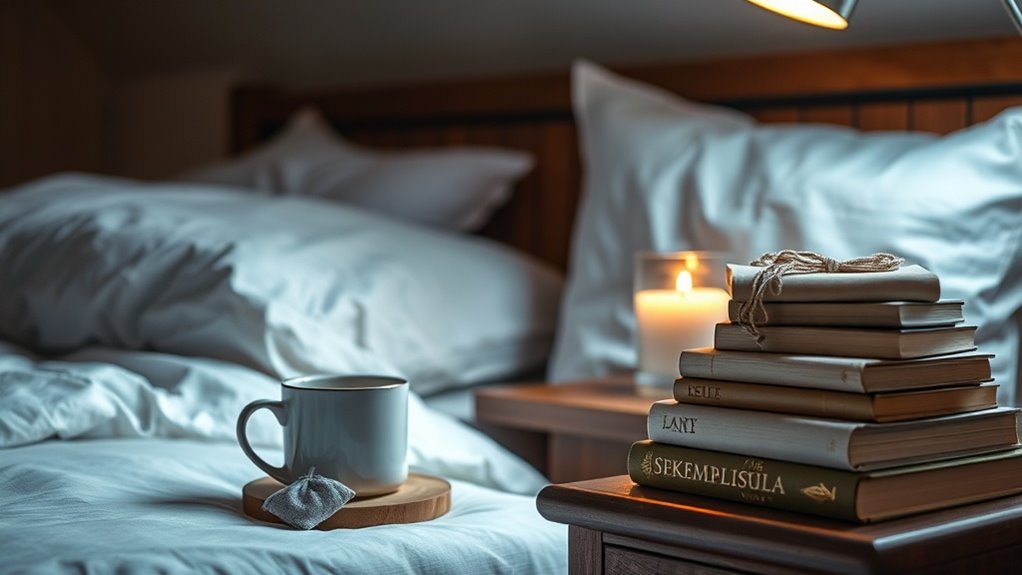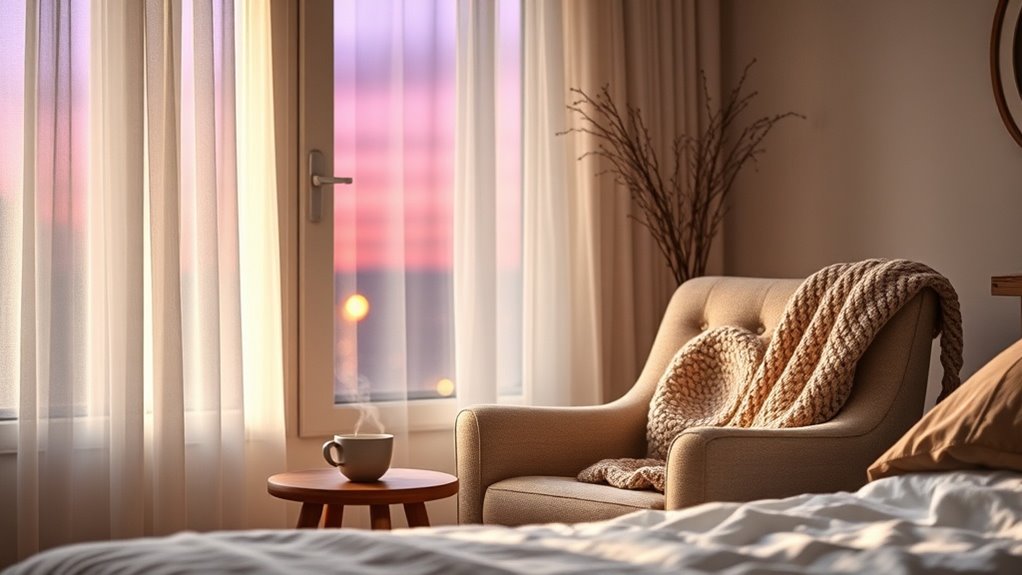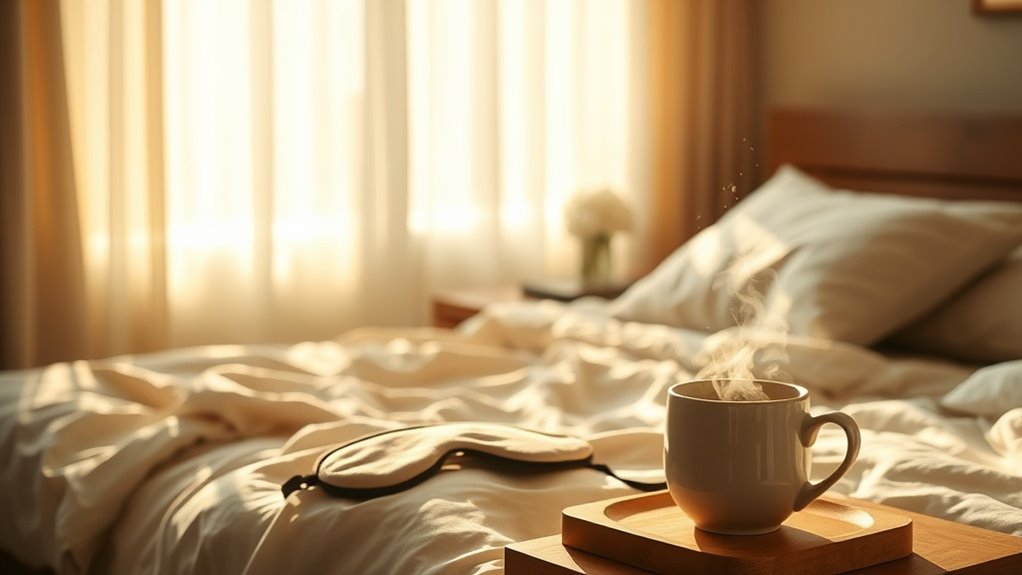How a Digital Detox at Night Improves Sleep
If you’ve ever struggled with sleep, you may not realize how much your screens contribute to the problem. Blue light disrupts your body’s natural rhythms and can hinder melatonin production, making it tougher to unwind. A digital detox at night offers the chance to disconnect from devices and create a calming environment. But how exactly can you implement this change? And what benefits might you experience? Let’s explore the impact of this nighttime practice.
Understanding the Impact of Blue Light on Sleep
As you wind down for the night, you mightn’t realize that the screens you’re using could be sabotaging your sleep.
The blue light emitted by devices interrupts your natural sleep cycle, reducing melatonin production.
The Benefits of Creating a Tech-Free Environment
Creating a tech-free environment can significantly enhance your sleep quality and overall well-being.
By eliminating screens, you reduce blue light exposure, allowing your body to produce melatonin naturally. This transition fosters relaxation, making it easier to unwind before bed.
A clutter-free space also minimizes distractions, creating a peaceful atmosphere essential for restful sleep, ultimately promoting better mental clarity and emotional health. Additionally, engaging in activities such as journaling for reflection can further enhance your nighttime routine and contribute to a more peaceful sleep.
Strategies for Implementing a Nightly Digital Detox
While many people struggle to disconnect from digital devices at night, implementing a nightly digital detox can be a straightforward and effective strategy for better sleep.
Start by setting a specific time to turn off all screens. Designate a charging station away from your bedroom, and replace screen time with calming rituals. This commitment can significantly enhance your sleep quality and overall well-being. Engaging in mindfulness practices before bed can further amplify mental clarity and promote a more restful night.
Alternative Activities to Promote Relaxation Before Bed
Finding relaxation before bed can significantly improve your sleep quality, especially when you replace screen time with engaging alternative activities.
Consider reading a book, practicing meditation, or doing gentle yoga stretches. These activities help calm your mind and body, making it easier to drift off. Additionally, mindful breathing techniques can further enhance your relaxation experience and invite tranquility.
Long-Term Effects of Reduced Screen Time on Sleep Quality
Reducing screen time has significant long-term effects on sleep quality that can enhance your overall health.
As you establish healthier bedtime habits, you’ll notice deeper sleep cycles and improved restfulness. This leads to increased daytime energy, better mood regulation, and enhanced cognitive function. Additionally, consistent quality sleep can strengthen your immune system, making it easier for you to face daily challenges. Incorporating a simple evening routine that prioritizes relaxation can further support these benefits.

